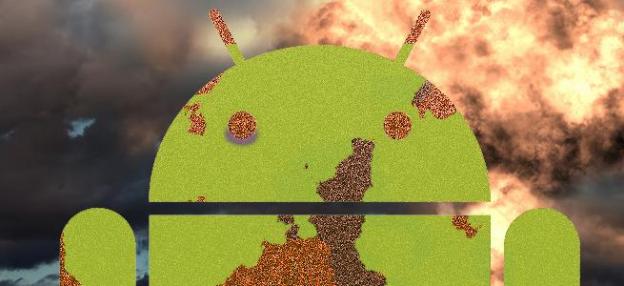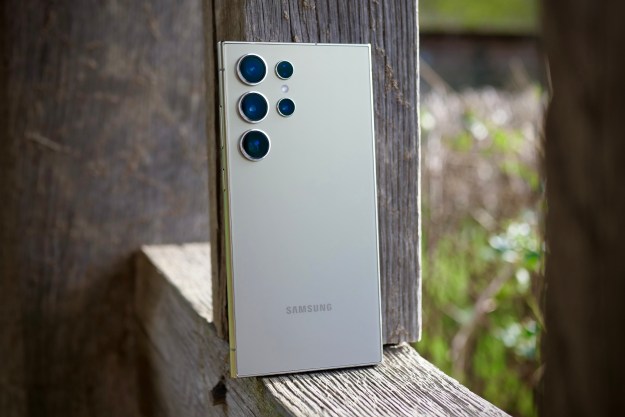 While watching the coverage of the Apple vs. Google battle, we can easily forget that this fight isn’t about market share or about market dominance. Apple isn’t using litigation to make up for any internal shortcoming or weakness, even though this is how the media often portrays the situation. The lawsuit is about revenge for a deep and personal betrayal. In this battle, similar to the one between Palestine and Israel, the only outcome Apple will accept is the death of Android. And this battle isn’t tactical; no limit to time or money will stop this battle, only Android’s death. In effect, Apple’s founder, Steve Jobs, declared all-out war against Android, and he was the only one who could call it off.
While watching the coverage of the Apple vs. Google battle, we can easily forget that this fight isn’t about market share or about market dominance. Apple isn’t using litigation to make up for any internal shortcoming or weakness, even though this is how the media often portrays the situation. The lawsuit is about revenge for a deep and personal betrayal. In this battle, similar to the one between Palestine and Israel, the only outcome Apple will accept is the death of Android. And this battle isn’t tactical; no limit to time or money will stop this battle, only Android’s death. In effect, Apple’s founder, Steve Jobs, declared all-out war against Android, and he was the only one who could call it off.
To understand this conflict, you have to understand Steve Jobs and what he believed Google’s founders and CEO did to him.
Steve Jobs
Steve Jobs saw himself as the ultimate manipulator, and he likely was. He was P.T. Barnum, and almost everyone else was a rube. Jobs actually was insecure, and took perceived challenges to his status seriously.
For instance, when Jobs returned to Apple before he was CEO, an internal analyst riding with him in an elevator didn’t show Jobs the respect he felt he deserved. After becoming CEO, Jobs waited to ride in the elevator with that analyst again. He had the analyst fired during the elevator ride so that Jobs could demonstrate his superiority.
Those close to Jobs can tell story after story of seemingly petty acts that were, in hindsight, all designed to preserve Jobs’ self-image – that he was better than everyone else. In Jobs’ mind, he took advantage of others; they didn’t take advantage of him.
So you can imagine that someone taking advantage of Jobs, particularly publicly, would be tantamount to a declaration of war.
Betrayal
Steve Jobs was not known as a people person. If you were to count the number of people he personally helped, you likely could use one hand and have fingers left over. But he clearly took a liking to Google’s founders; he put Google’s CEO on Apple’s board. That was a prestigious position, and one Jobs didn’t appoint lightly.
Given Google domination of search and Jobs’ light understanding of the Web and hosted services, this seemed like a perfect partnership. In Jobs’ mind, no chance existed that the two companies ever would be competitors.

This betrayal happened while Jobs was trying to recover from cancer, and he undoubtedly was off his game. No doubt he felt vulnerable, and that a trusted friend took advantage of him during this time was a particularly low blow.
Now let’s add one final blow: Google gave away the resulting iOS copy for free. In effect, Google went to every Apple competitor and said, “We’ll take our inside knowledge of Apple and help you knock them off the top spot,” which is what Samsung did. So if Android was stabbing Steve Jobs and Apple in the back by stealing Apple’s technology, providing it for free was gleefully twisting the knife.
Apple employee loyalty to Jobs was high, particularly among those in power at the company. The massive betrayal of an iconic leader like Jobs can be, and in this case was, felt by the rank and file within Apple, and his pain translated to most of them.
In short, had Google planned to institutionalize a war with Apple, it could not have been more effective.
Vendetta
Apple now has a vendetta, and Samsung is simply a stepping stone. Once upon a time, Samsung was a major Apple supplier, and clearly Apple knew that company someday would be a competitor. But Apple wouldn’t be fond of Samsung creating knock-offs of Apple products. This is likely why Apple is initially hitting Samsung harder than the other licensees, but Apple’s plan is to go after every one of them. Apparently, at least for now, Apple plans solely to compete with Amazon because Amazon ripped off Google, and Apple thinks that is poetic justice. (Amazon took Android, forked it, and made Android its own OS, and is no longer connected to Google).
Apple hired its chief attorney from Intel, the only technology firm of scale that has developed an offensive litigation strategy. Intel litigation is designed to destroy the other side regardless of whether Intel wins or loses. Intel hires the best to assure its success.
Apple isn’t going to stop litigation until it either runs out of a resource (which is unlikely at the moment) or Android is effectively dead. This is a fight to the death. From Apple’s perspective, only the death of Android, the product that represents the craven betrayal of Apple’s founder, is acceptable. Until Apple achieves this goal, Apple is likely to partner with anyone (including Microsoft) to move against Google’s interests until and unless Apple can convince Google to exit this business.
Unless Google exits, the present litigation is only the beginning. This war will continue to escalate. At some point, the costs to Google will exceed any reasonable benefits to the company. The only question is how long that will take.
Guest contributor Rob Enderle is the founder and principal analyst for the Enderle Group, and one of the most frequently quoted tech pundits in the world. Opinion pieces denote the opinions of the author, and do not necessarily represent the views of Digital Trends.
Editors' Recommendations
- An Apple insider just revealed how iOS 18’s AI features will work
- We now know when Apple is adding RCS to the iPhone
- No, the Journal app on your iPhone isn’t spying on you
- I tried the Apple Vision Pro. Here’s why it won’t replace my iPhone
- The OnePlus 12 has one big advantage over Samsung and Apple


